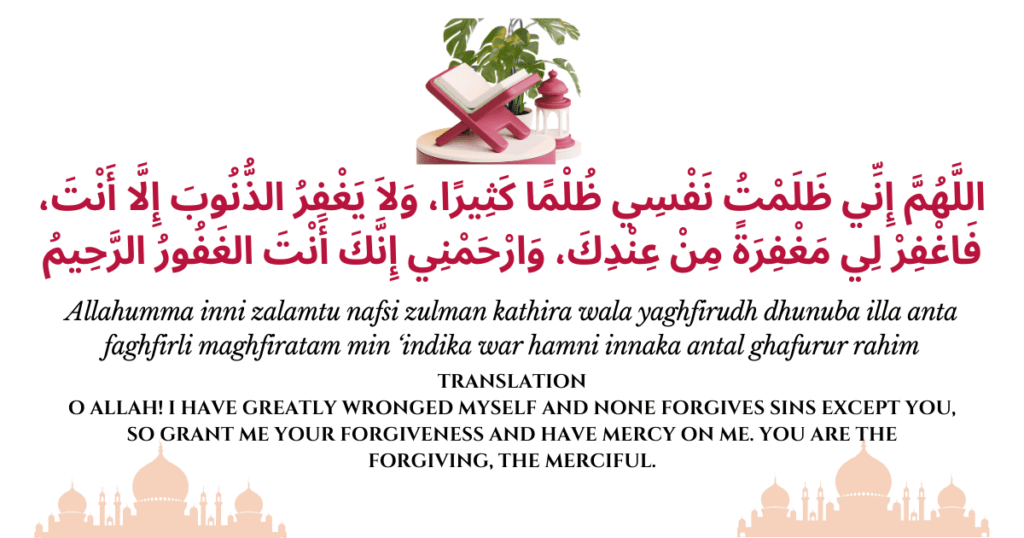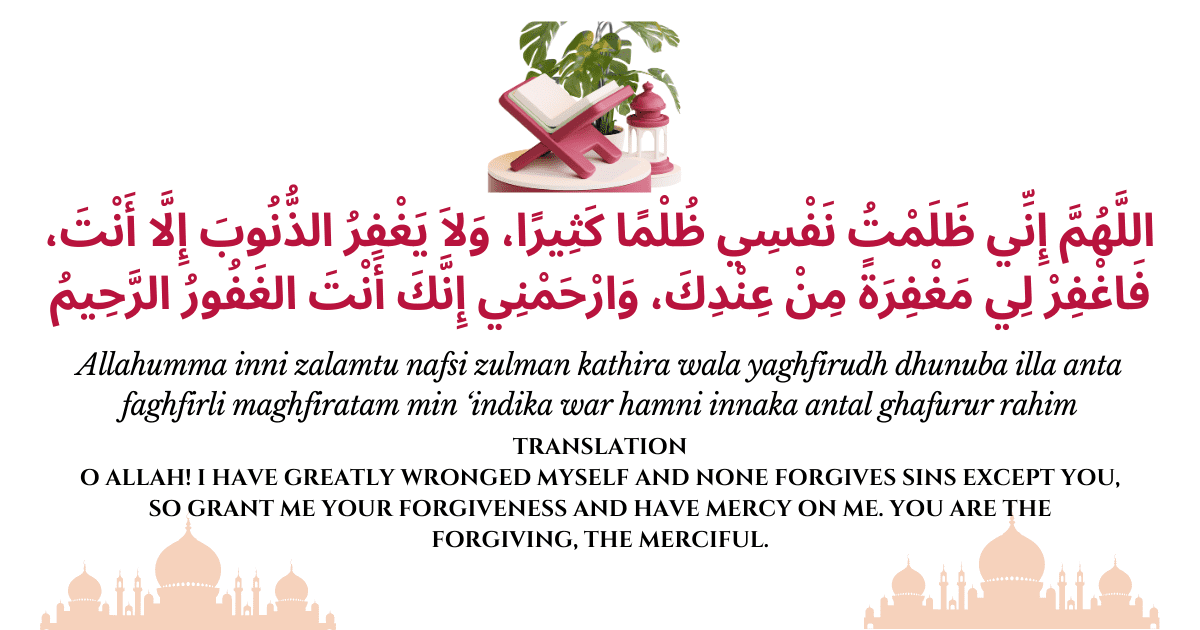Dua & Surah PDF
allahumma inni zalamtu nafsi, allahumma inni zalamtu nafsi dua, allahumma inni zalamtu nafsi full, allahumma inni zalamtu nafsi in arabic, allahumma inni zalamtu nafsi in hindi, allahumma inni zalamtu nafsi with urdu translation, allahumma inni zalamtu nafsi zulman, allahumma inni zalamtu nafsi zulman casino, allahumma inni zalamtu nafsi zulman kaseera, dua allahumma inni zalamtu nafsi, rabbi inni zalamtu nafsi, rabbi inni zalamtu nafsi zulman
pdfislamicdua
0 Comments
Allahumma Inni Zalamtu Nafsi Dua pdf-when to read
The Dua “Allahumma inni zalamtu nafsi” is to be recited after the Durood Sharif in prayers and before the Taslim. According to the Sunnah of Prophet Muhammad (peace be upon him), many Dua can be recited during prayers.
After completing the final Tashahhud in prayer, just before saying the Taslim, there’s a special moment for Muslims to connect deeply with Allah (Glory be to Him). It’s a time to seek forgiveness and protection and to ask for anything that’s in our hearts.
Allahumma Inni Zalamtu Nafsi Dua pdf

what are the 40 rabbana duas?
Allahumma Inni Zalamtu Nafsi Dua in Namaz
In each prayer, some specific Dua must be recited, like the Attahiyyaat and Durood-e-Ibrahimi, which are mandatory. Forgetting them can make the prayer incomplete. But after these mandatory parts, there’s an opportunity to add personal supplications, known as Sunnah duas.
These Sunnah duas are not obligatory, but they’re highly recommended because Prophet Muhammad (peace be upon him) recited them on different occasions. They serve as a beautiful way to ask Allah for forgiveness, mercy, and blessings.
So, after reciting the required parts like the Attahiyyaat and Durood-e-Ibrahimi, Muslims can take a moment to quietly speak to Allah, expressing their deepest wishes, seeking forgiveness for any wrongdoings, and asking for guidance and protection.
This time between the Tashahhud and the Taslim is a precious moment in prayer, a chance to strengthen our connection with Allah and seek His mercy and blessings.
Abu Bakr As-Siddiq (may Allah be pleased with him) once asked the Prophet Muhammad (peace be upon him) for such a supplication to recite during prayers, and the Prophet taught him this:
“O Allah! I have considerably wronged myself. There is none to forgive the sins but You. So grant me pardon and have mercy on me. You are the Most Forgiving, the Most Compassionate.”
This dua is not obligatory but is highly recommended according to the Sunnah of Prophet Muhammad (peace be upon him).
The virtue of this specific dua lies in its reminder of humility and seeking forgiveness from Allah. It starts by acknowledging one’s faults, asking for forgiveness, and seeking Allah’s mercy. By reciting this dua, we recognize our dependence on Allah’s forgiveness and mercy in our daily lives.














Post Comment